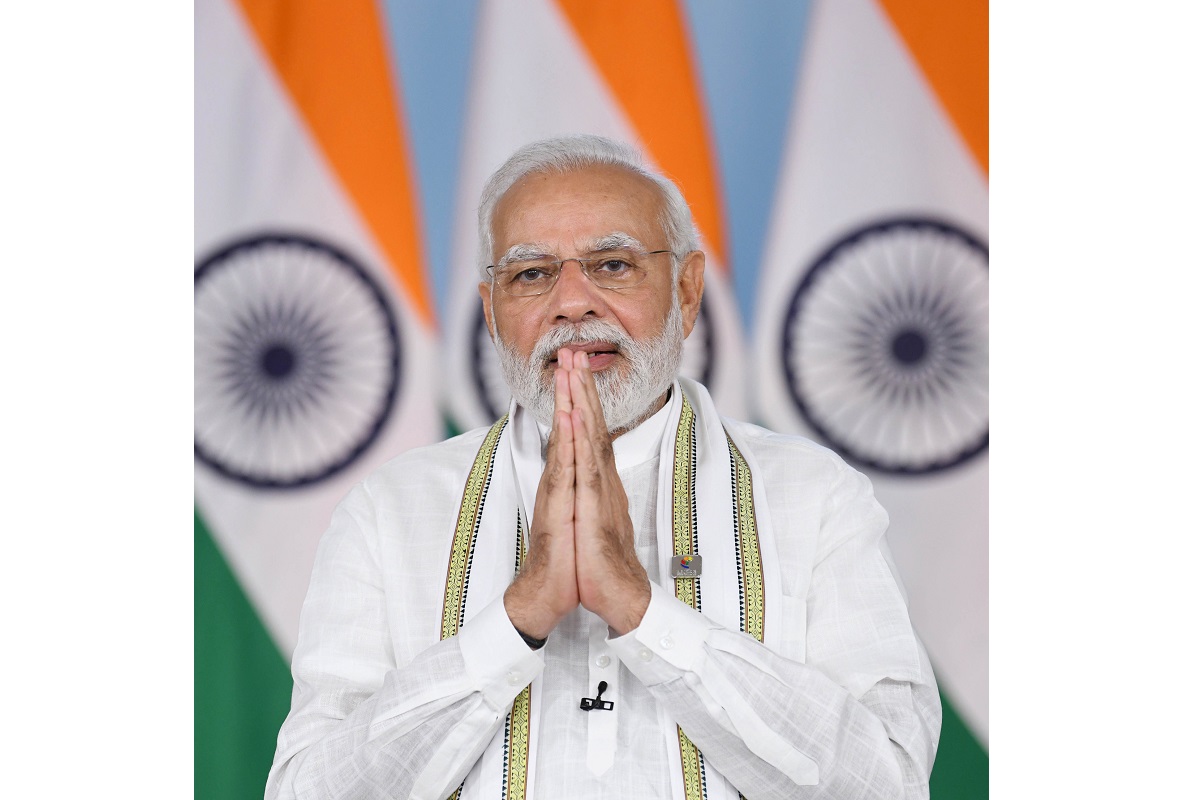PM Modi inaugurates wildlife conservation, rehabilitation initiative in Gujarat
Prime Minister Narendra Modi on Tuesday inaugurated Vantara, a unique wildlife conservation, rescue and rehabilitation initiative in Jamnagar, Gujarat.
UAE to invest $2 billion in food parks in India; I2U2 to advance energy project in Gujarat.

(ANI Photo/PIB)
| Hailing the I2U2 (India, Israel, US, and UAE) initiative as a good model for practical cooperation amid increasing global uncertainties, Prime Minister Narendra Modi, on Thursday, said the newly-formed grouping has identified joint projects in different areas and chalked out a roadmap for implementing these projects. Advertisement ”We have agreed to increase joint investments in six important areas like water, energy, transportation, space, health and food security under the ‘I2U2’ framework,” he said addressing the first I2U2 Summit, hosted by Israel Prime Minister Naftali Bennett in virtual mode. US President Joe Biden and UAE President Mohamed bin Zayed Al Nahyan also attended the meeting. Advertisement The summit ended with the UAE deciding to invest $2 billion to develop a series of integrated food parks across India that will incorporate state-of-the-art climate-smart technologies to reduce food waste and spoilage, conserve fresh water, and employ renewable energy sources. India will provide appropriate land for the project and facilitate farmers’ integration into the food parks. US and Israeli companies will provide their expertise and offer innovative solutions that contribute to the overall sustainability of the project. The summit also decided that the four countries will advance a hybrid renewable energy project at Dwarka in Gujarat consisting of 300 MW of wind and solar capacity complemented by a battery energy storage system. The US Trade and Development Agency had funded a feasibility study for the $330 million project. UAE-based companies are exploring opportunities to serve as critical knowledge and investment partners. Israel and the US intend to work with the UAE and India to highlight private sector opportunities. Indian companies are keen to participate in this project and contribute to India’s goal of achieving 500 GW of non-fossil fuel capacity by 2030. Observing that the summit was a meeting of strategic partners in the true sense, Modi said the four countries were good friends and there were similarities in their vision and interests. ”Today’s summit has set a constructive agenda for I2U2…this is quite obvious that I2U2’s vision and agenda are progressive and practical,” he added. The PM was of the view that the four countries must expedite the agenda of the four-nation grouping by mobilising their respective strengths, capital, expertise, and markets. ”Together, we can contribute significantly to the global economy,” he added. The PM expressed confidence that the members of the grouping would make a major contribution to global cooperation in energy security, food security, and economic growth. The I2U2 grouping was conceptualised during the meeting of the foreign ministers of the four countries held on 18 October 2021. It is aimed at encouraging joint investments in six mutually identified areas such as water, energy, transportation, space, health, and food security. It intends to mobilise private sector capital and expertise to help modernise the infrastructure, and low carbon development pathways for industries, improve public health, and promote the development of critical emerging and green technologies. The four leaders also discussed the other possible joint projects within the framework of I2U2 as well as the other common areas of mutual interest to strengthen the economic partnership in trade and investment in the respective regions of the four countries and beyond. |
Advertisement